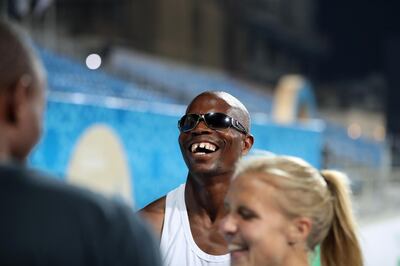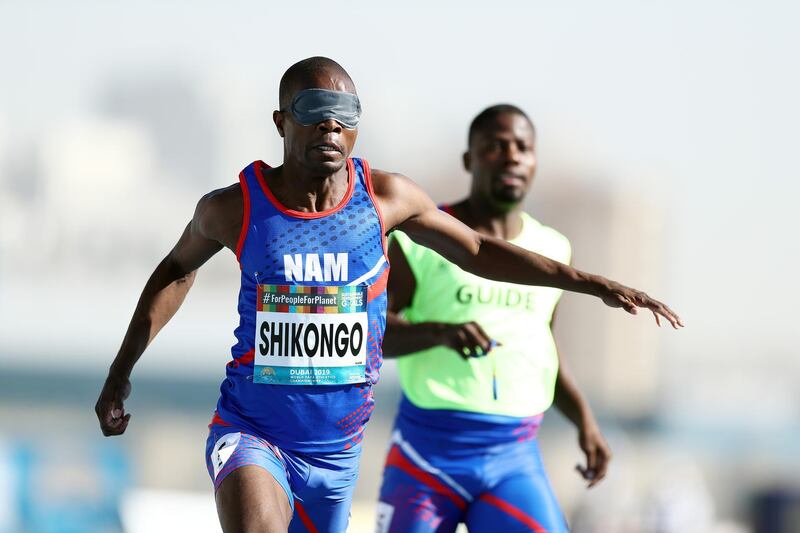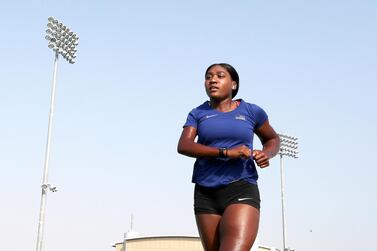A blind sprinter who made history when he became the first Namibian man to win an Olympic or Paralymic gold says sports lifted his family from poverty.
Ananias Shikongo had won several gold medals in the All African Games but his life changed after he won a 200m gold and bronze in the 100m and 400m three years ago at the Rio Paralympics.
“Everything changed for me because I got rewards and moved from the ghetto to a nice brick house,” said the athlete, who runs with a guide in the T11 category for the visually impaired at the World Para Athletics Championships in Dubai.
“Having enough funds makes life easier. I can train and not worry about being hungry the next day because I can eat proper food.”
After his 2016 gold medal performance, a bank in Namibia presented him with a two-room house that he now lives in.
The son of poor farm workers, he lived for years in a room without electricity or running water within the Katutura township in the Namibian capital of Windhoek.
Driven by grit and determination to improve his circumstances, Mr Shikongo often walked with a friend or guide two hours each way to the main stadium where athletes trained.
He can never forget the pangs of hunger when he could only afford to eat pap, a staple Namibian porridge of ground maize mixed with water, "not even bread or jam,” said the 33-year-old sprinter.
“We knew we should eat eggs but we were not able to buy this. If I had enough money for lunch then I could not eat dinner.”

A fundraising campaign begun by a Dutch sports media researcher who read about his story transformed his life. The website launched by Elisa Ostet helped raise funds from across the world for Mr Shikongo’s nutrition, transport, sports clothes and shoes.
The Sports on the Move foundation added nutritious food to the table and Mr Shikongo was able to focus on his training.
Ms Ostet said she had found it “unbelievable” that Mr Shikongo had reached a top level in Paralympics given his difficult circumstances.
Mr Shikongo has a clear plan of how he wants to uplift sportspeople in his country. The foundation already supports two other blind Paralympians and their guides.
He hopes to launch a blind soccer team and build a running track close to the makeshift shacks of his previous home in the Katutura township to inspire other children to take up sports.
“Many disabled people give up. They drop out of school and training. They get too tired. I want to catch their talent," he said.
He is studying toward a degree in physiotherapy so that when his athletic career ends he can provide professional help to the team.
Mr Shikongo hopes to win gold at the Tokyo Paralympics next year and inspire young people to take up sports.
“I want to tell parents that sports can create chance and change in their children’s life,” he said.
"They must take the child to school to see if their talent is in soccer, shot put, swimming or arts."







